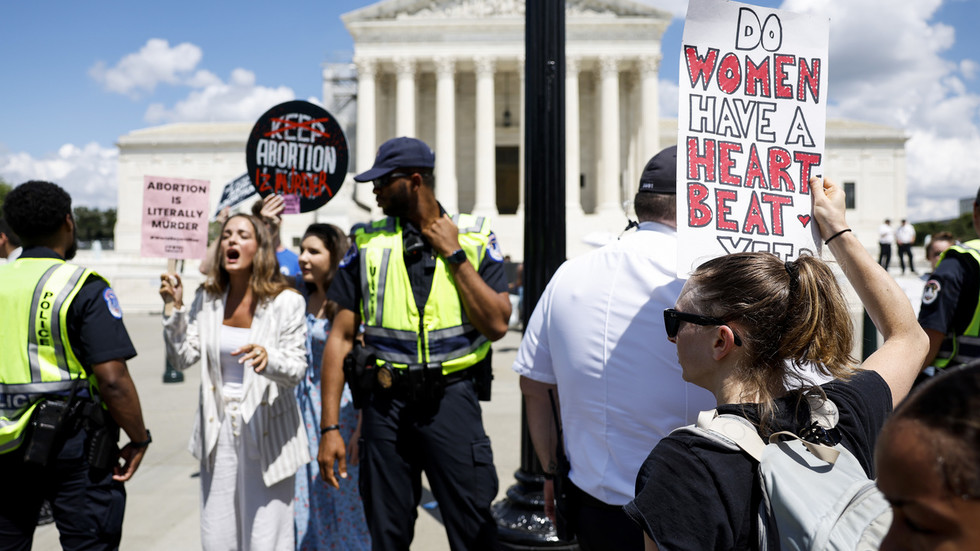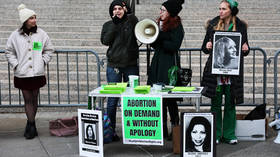
The US Supreme Court ended five decades of abortion legislation in June 2022

Anti-abortion activists protest near a Women’s March rally in front of the U.S. Supreme Court Building on June 24, 2023 in Washington, DC © Getty Images / Anna Moneymaker/Getty Images
Tens of thousands of babies were born in states that have enacted abortion restrictions in the wake of the US Supreme Court overturning the landmark Roe v. Wade ruling last year, according to the findings of a study.
In June 2022, the United States’ highest court voted 6-3 in favor of reversing the Roe v Wade decision that made abortion a federal right, ending five decades of legal protections for women seeking the procedure. The court’s ruling set in motion a process for individual states to restrict or impose an outright ban on the termination of pregnancies.
Now, nearly 17 months later, a study conducted by the Institute of Labor Economics released this month has found that about 32,000 babies have been born that would otherwise have been aborted in states that imposed bans.
“Our primary analysis indicates in the first six months of 2023, births rose by an average of 2.3% in states enforcing total abortion bans compared to a control group of states where abortion rights remained protected, amounting to approximately 32,000 additional annual births resulting from abortion bans,” the authors of the study wrote.

Read more
The study added that birth data, which was based upon information obtained by the US Centers for Disease Control and Prevention (CDC), shows “the most profound transformation of the landscape of US abortion access in 50 years.” It also found that 23% of US women of reproductive age have experienced an increase in the distance required to travel to receive an abortion, from an average of 43 miles to 330 miles.
Since Roe v Wade was overturned, 21 states have banned abortions or restricted access to the procedure, compared to the standard set out by the Supreme Court’s initial ruling in January 1973.
The data put forth by the study, according to Kristan Hawkins, president of the pro-life advocacy group Students for Life America, is evidence that “pro-life policies result in lives saved,” she said to the New York Times this week.
However, critics of the removal of abortion rights maintain that the research reflects an increased burden on low-income women. Alison Gemmill of the Johns Hopkins Bloomberg School of Public Health told CNN that the data shows an “assault on reproductive autonomy.”
She pointed to data that showed 75% of US abortions in 2020 involved women of limited income, while 55% had recently experienced disruptive events such as losing a home or employment. The study’s authors appeared to agree with this analysis, writing in the report that “diminished abortion access poses a risk to health and financial stability of this vulnerable population.”




